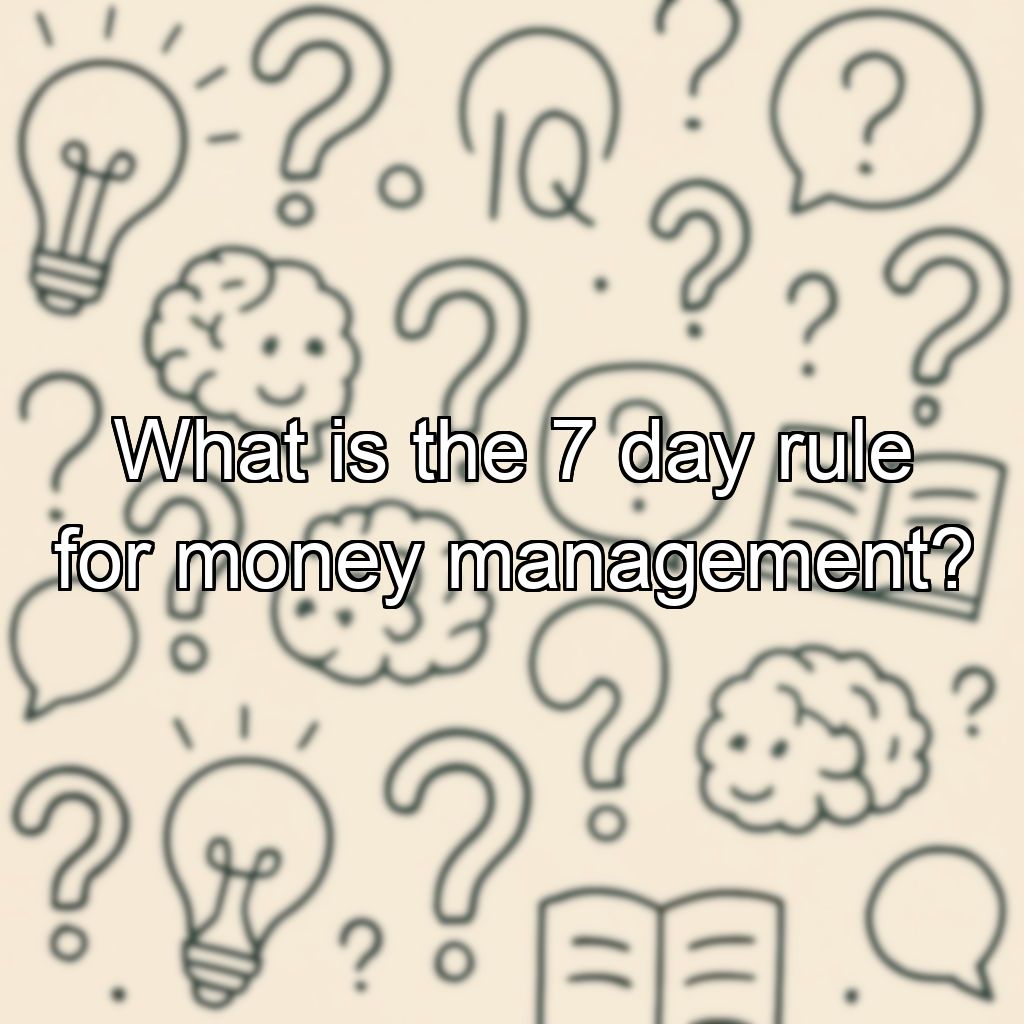What is the 7 day rule for money management?

The 7 Day Rule for Money Management
The "7 day rule" is a simple personal finance guideline aimed at helping individuals curb impulse spending and make more thoughtful purchasing decisions. The rule is especially useful for non-essential or discretionary purchases.
How the 7 Day Rule Works
- Pause Before Purchasing: When you feel the urge to buy something that isn't essential, refrain from buying it immediately.
- Wait 7 Days: Write down the item and its cost, then wait for seven days before making the purchase.
- Re-evaluate the Need: After seven days, revisit your desire to buy the item. If you still feel it's necessary or valuable, and you can afford it without straining your budget, consider purchasing it. If not, skip the purchase.
Benefits of the 7 Day Rule
- Reduces Impulse Spending: Pausing for a week allows time for rational decision-making rather than emotional or impulsive reactions.
- Encourages Mindful Spending: By evaluating whether you still want or need the item after a period, you may find that many urges fade.
- Helps Stick to Budgets: This rule can help you stay within your financial limits by minimizing unnecessary expenses.
When to Use the 7 Day Rule
The rule is most effective for discretionary purchases, such as clothing, gadgets, or entertainment expenses. It may not be practical for essentials like groceries or urgent needs.